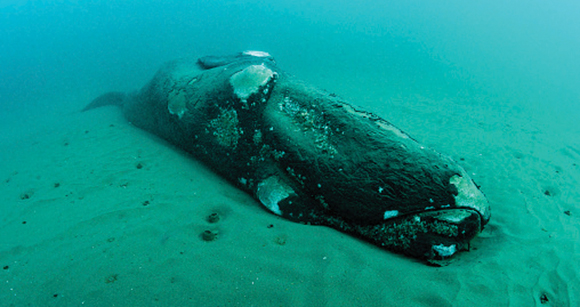With support from AWI and other organizations, a joint International Whaling Commission/Convention on the Conservation of Migratory Species virtual workshop was held in April 2021 on the role of cetaceans in ecosystem functioning. This was the first of two planned workshops to implement a 2016 resolution approved by the IWC to consider the contributions made by cetaceans to marine ecosystem functioning. The April workshop’s primary focus was to identify and prioritize the research needed to advance our understanding of cetacean contributions.

Nearly two dozen experts from around the world discussed the ecological value of whale falls (when whales die and their carcasses sink to the bottom of the ocean) and the role of cetaceans in carbon sequestration, nutrient circulation, ocean fertilization, and as both predators and prey. Workshop participants agreed that cetaceans play a crucial role in well-functioning marine ecosystems, including by transporting nutrients and thereby supporting life at the base of the food web. They also agreed that cetacean carcasses sequester massive amounts of carbon while increasing deep-sea biodiversity.
Given cetaceans’ potential in mitigating climate change, their protection is increasingly important. Workshop participants highlighted how the role of large whales in sequestering carbon is growing as their populations recover from decades of commercial whaling that devastated whale populations globally.